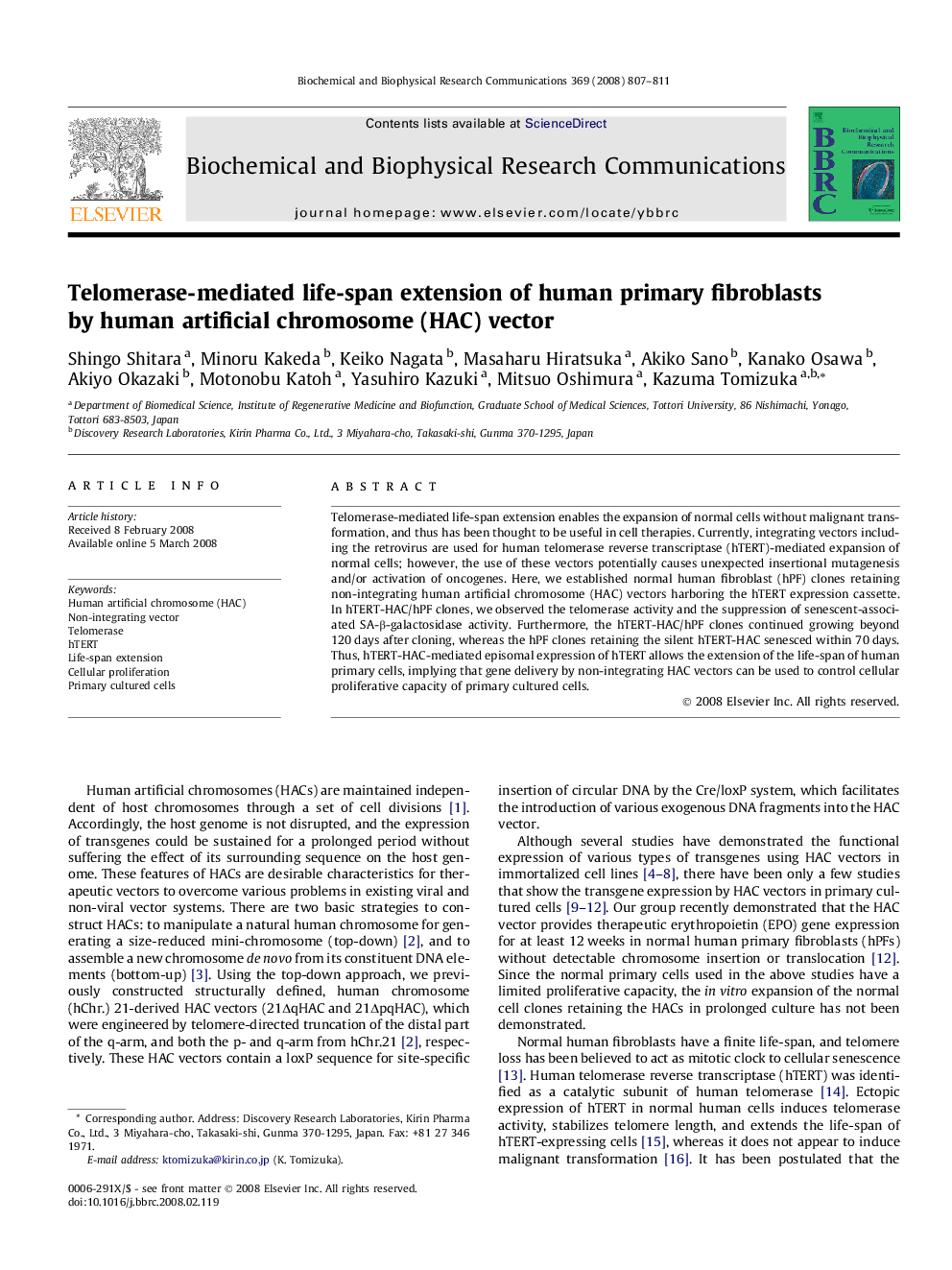| Article ID | Journal | Published Year | Pages | File Type |
|---|---|---|---|---|
| 1935975 | Biochemical and Biophysical Research Communications | 2008 | 5 Pages |
Telomerase-mediated life-span extension enables the expansion of normal cells without malignant transformation, and thus has been thought to be useful in cell therapies. Currently, integrating vectors including the retrovirus are used for human telomerase reverse transcriptase (hTERT)-mediated expansion of normal cells; however, the use of these vectors potentially causes unexpected insertional mutagenesis and/or activation of oncogenes. Here, we established normal human fibroblast (hPF) clones retaining non-integrating human artificial chromosome (HAC) vectors harboring the hTERT expression cassette. In hTERT-HAC/hPF clones, we observed the telomerase activity and the suppression of senescent-associated SA-β-galactosidase activity. Furthermore, the hTERT-HAC/hPF clones continued growing beyond 120 days after cloning, whereas the hPF clones retaining the silent hTERT-HAC senesced within 70 days. Thus, hTERT-HAC-mediated episomal expression of hTERT allows the extension of the life-span of human primary cells, implying that gene delivery by non-integrating HAC vectors can be used to control cellular proliferative capacity of primary cultured cells.
